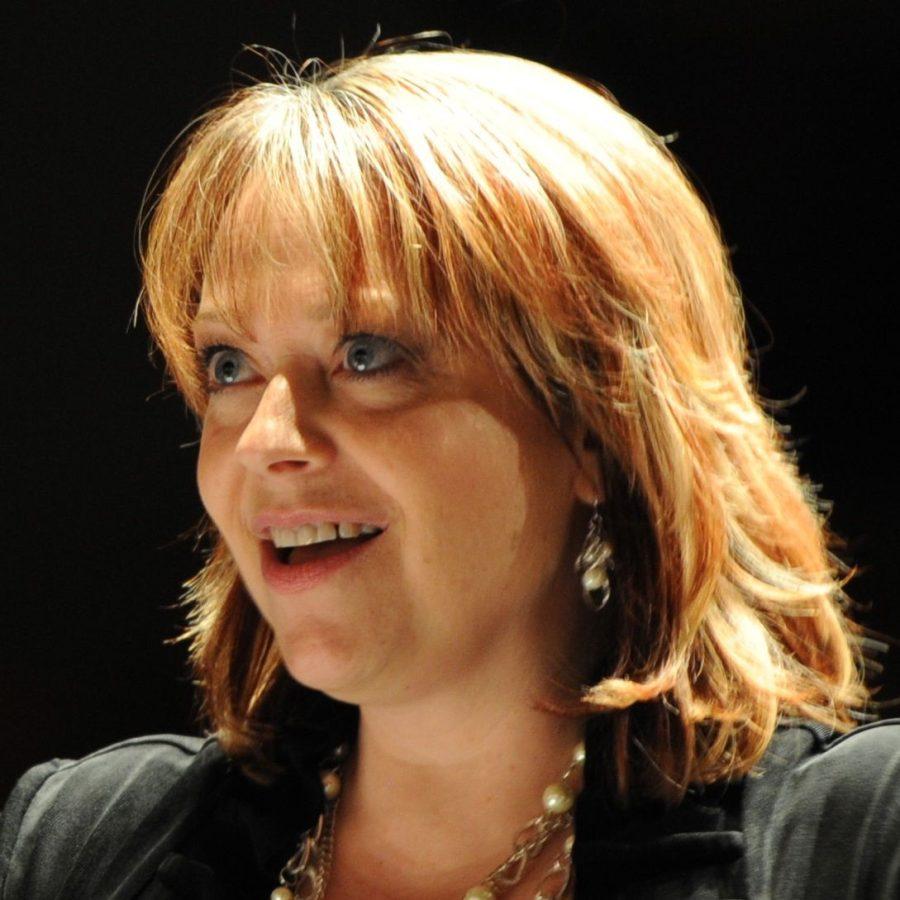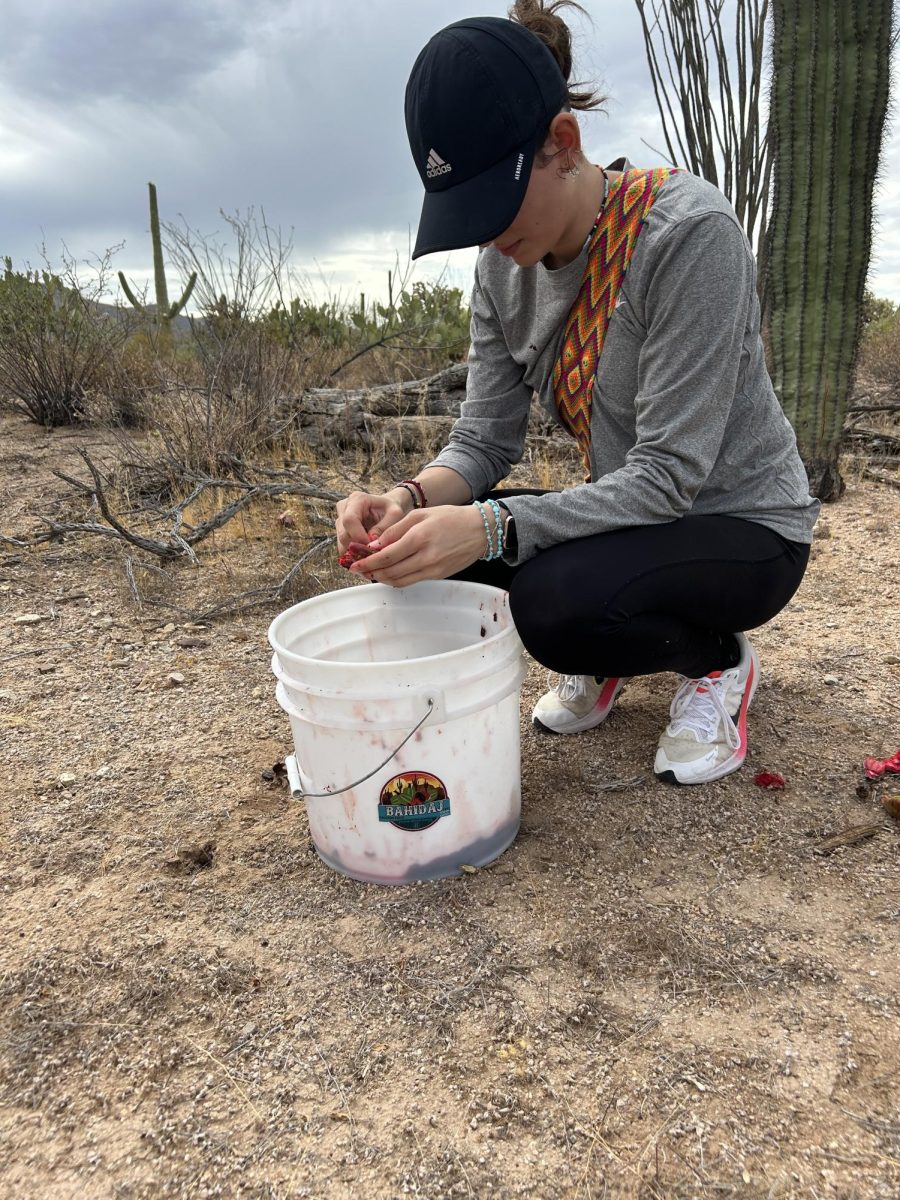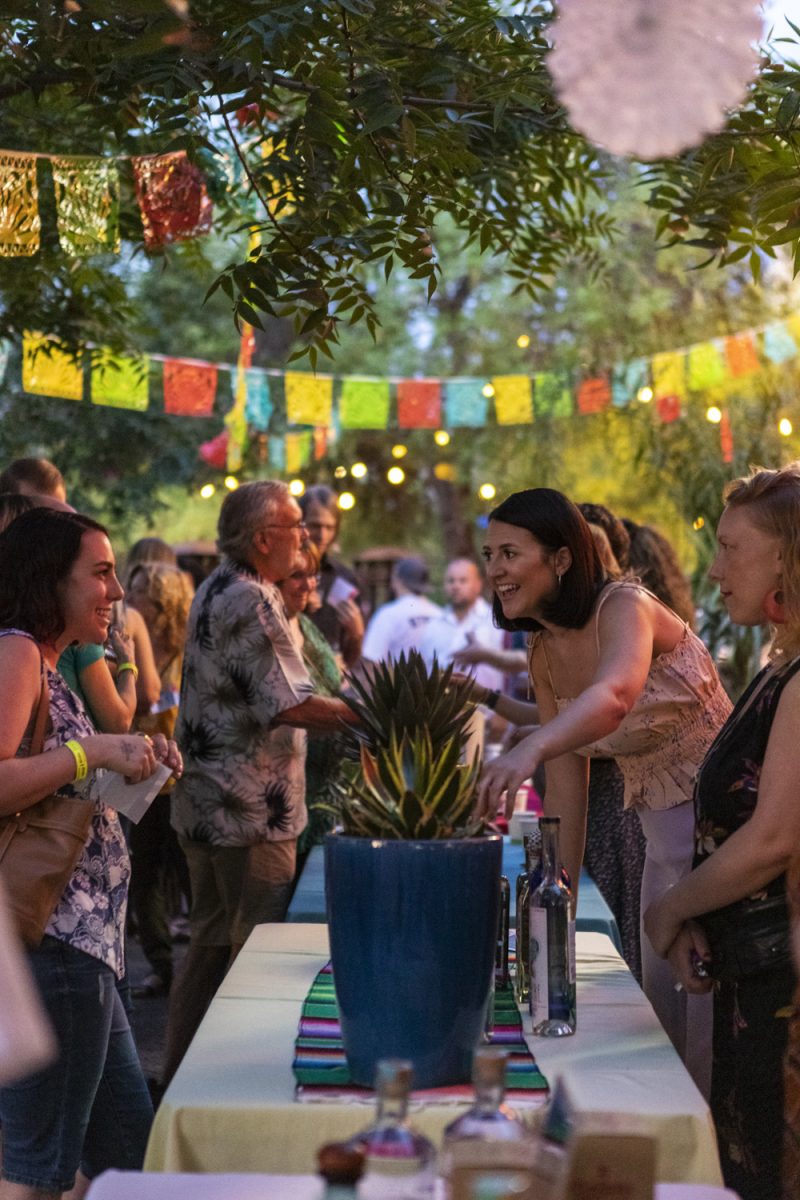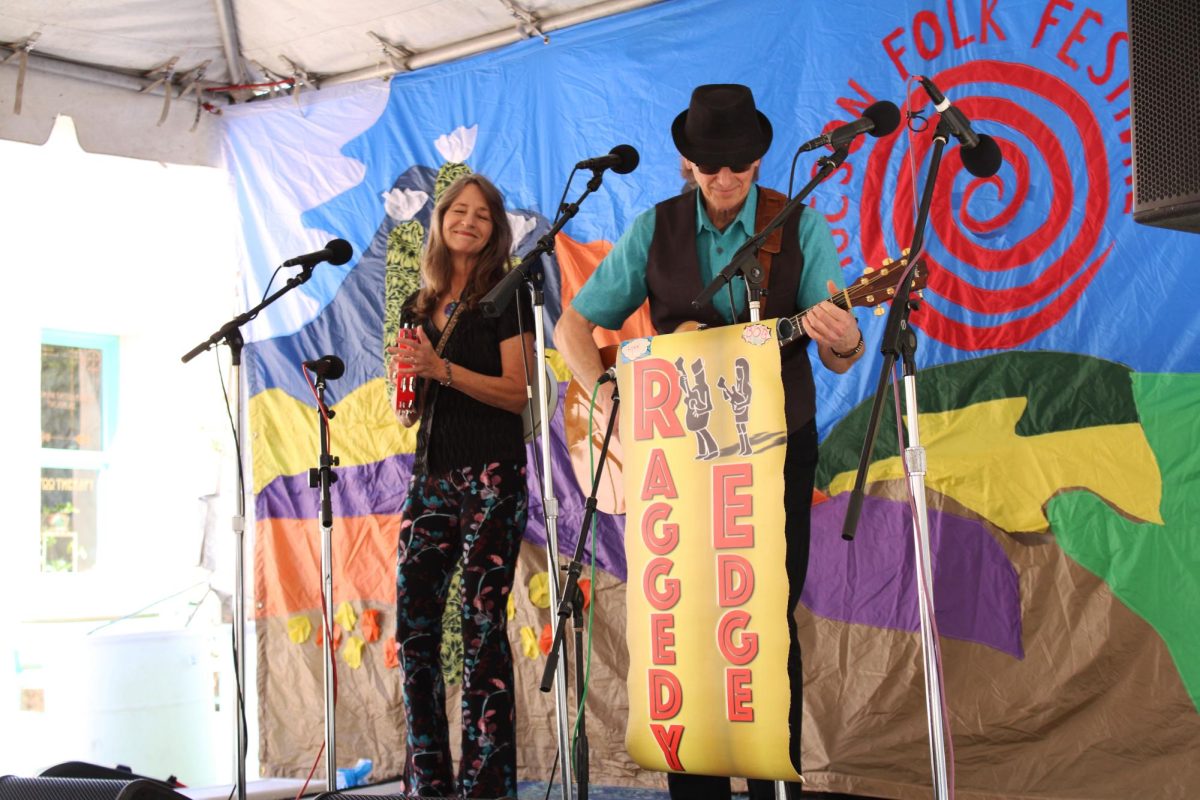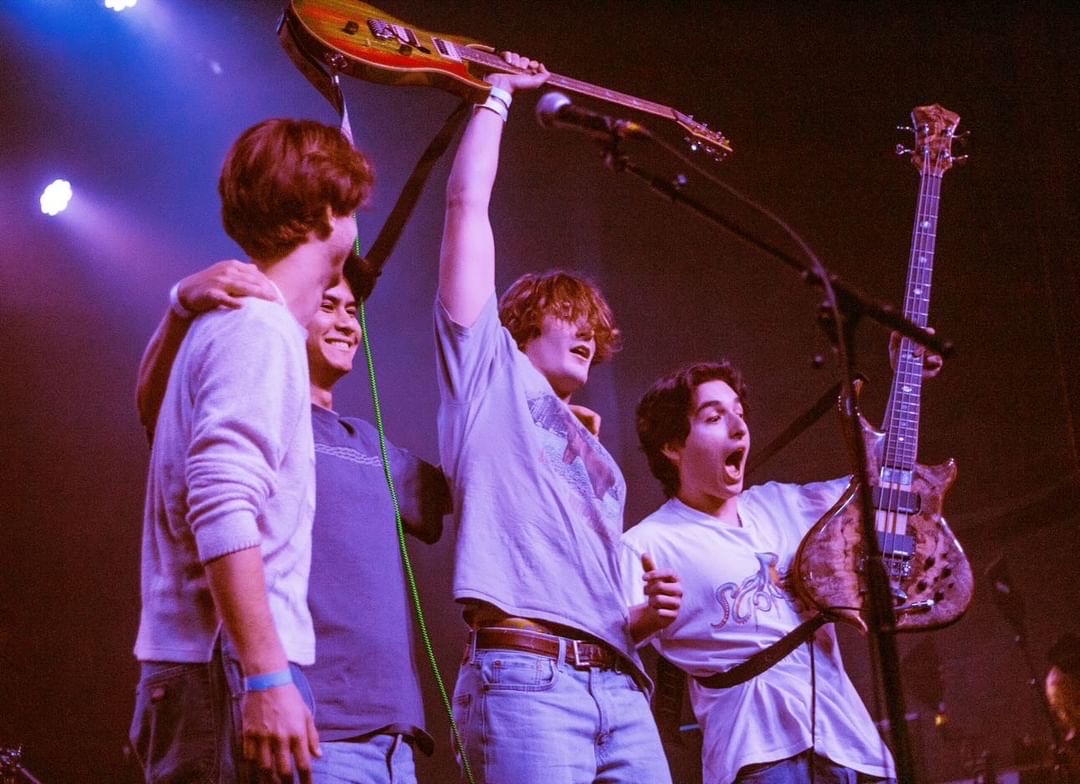From her childhood years into adulthood, Lori Wiest has been surrounded by music. Now, she has been appointed the new director of the University of Arizona’s Fred Fox School of Music starting on July 1.
Part of Wiest’s personal music education occurred at the UA. Thirty years ago, Wiest received her doctorate in choral conducting from the UA. In addition, Wiest also has a master’s degree in choral music from Arizona State University and a bachelor’s in music education and piano performance from North Dakota State University.
The Daily Wildcat talked to Wiest to learn about her passion for music, plans for UA Fred Fox School of Music and more.
RELATED: Two professors given first Integrative Medicine in Residency Award
Daily Wildcat: When did you first become interested in music?
Lori Wiest: I have two older brothers, and both of them are very talented musically. My mother was a church organist, and when she was younger was a pianist for a swing band. I was really brought up in a family that celebrated music in the home, at church and in the community. I started piano lessons when I was five and learned how to read music, loved singing and played instruments. When you’re the youngest and everybody else in the family loves music, you get excited about trying it too. The whole experience was surrounding and enveloping me in every possible way while I was growing up.
I continued taking piano and voice lessons through high school, but when somebody asked me what I wanted to do for my major, I never said that it was gonna be music. There was a part of me that thought that when you love something so much, that probably shouldn’t be the degree you go into or your career, because then you stop loving it. When I was in undergrad working on my science major, I realized that what you should be going into is something that you are passionate about. So, I did add the music major and, from there, continued through music.
DW: And now we’re all glad that you did!
LW: Sometimes the weirdest things go through your mind when you’re growing up. What you’re passionate about should be something that drives your everyday living. I’m thankful that I love what I do.
DW: If you could meet your favorite composer, who would it be?
LW: I have so many, but I would love to meet Bach. I grew up in a very Lutheran tradition, so I grew up hearing and playing Bach as a pianist, which I still do. I would love to meet the kind of mind that composed as much music as he did and celebrate all that rich history of music. But, you know, if you asked me that tomorrow, I would probably say somebody different. I think that’s the beauty of what we do; there are so many composers from so many different countries, cultures and perspectives, that every day I find something new and I get so excited about it.
RELATED: Outstanding senior Savarese accepted into teaching assistant position for her musical passion
DW: What do you think the role of music in society is?
LW: It has so many fingers in the pie. We use music to put a stamp on what’s going on culturally and politically. We capture the perspective of what’s happening in the world around us. I think music helps us learn how to express and communicate. Some of us are not so wonderful at verbalizing and at being very articulate, and sometimes being able to express our feelings through music helps provide us with an avenue that we might not be able to access ourselves.
Everybody could probably say there’s one piece at any particular time that resonates with them in what they’re feeling: what it’s like to breakup with somebody, to celebrate a birth of a child or something wonderful in their lives. It’s an important part of who we are. Music is a celebration of humanity, of history, of culture and language. All of those things are so valued, especially when we’re going through some of the horrific things in our society right now. We can use music as a way to connect and to highlight new composers. Music is something that brings humanity back.
DW: What is your favorite thing about being a conductor? What is the hardest part?
LW (in an email): I believe that each singer contributes the gift of their individual voice, musicianship, and artistic understanding to an ensemble and then we work as a team to provide a unique choral sound, shaped by the needs of the music and the composer. I love working with people and their voices. The time we spend rehearsing together is my favorite time; the performance is the “icing on the cake” for me. I simply enjoy exploring the music, building voices and building upon vocal technique, and layering all of the components of musicianship towards the ultimate goal of creating and recreating music. The hardest time is when we aren’t able to be together to make music. As ensemble members, we are a team and we are inspired by each other and work more creatively when we are together in the same room.
DW: What are you most excited about for being back in Tucson and at Fred Fox?
LW: It’s amazing that 30 years ago I graduated from University of Arizona, and so much has changed. I’m looking forward to exploring the campus, and once things open again to be able to go to the museums and all of the concerts and performances.
I think the Fred Fox School of Music has outstanding faculty, staff and students. I’m so looking forward to working with them. I’m a team player, so I want us to find common ground, things that we all would love to explore, to open ourselves up to some new possibilities and to highlight the excellence that’s happening. I’m really passionate about music and people, so I’m looking forward to bringing those two things together with this position.
RELATED: UA physician and medical student bike across the country for U.S. healthcare system
DW: What is a mission you have for your time at Fred Fox?
LW: One thing I believe is that music is connected with health and wellness, and that it should be lifelong. Connecting music to all ages is something I want to do for health purposes.
Second, I believe in collaboration and interdisciplinary. I believe that like music and health, there are ways to collaborate with music in other fields and that’s something I would really like to look into and find new possibilities.
DW: If you could write a book with only the knowledge you currently possess, so no extra research allowed, what would it be about?
LW (in an email): While not an expert in the research itself, I have a form of synesthesia where I see colors when I hear music. This has its challenges, of course, but I enjoy when I try to explain to my choir members the intensity of a various color I would like the sound to be or that I would like the sound to be less orange. Generally, they find this quite humorous and have fun trying to emulate the shade of blue I might be describing. However, I don’t think I could find the words to actually describe this in a book!
Wiest hopes to be in Tucson by Aug. 1 for the fall semester.
Follow Sunday Holland on Twitter



